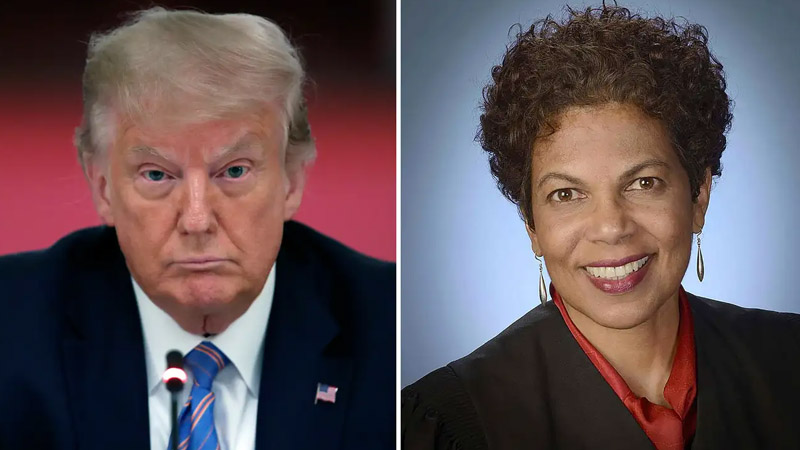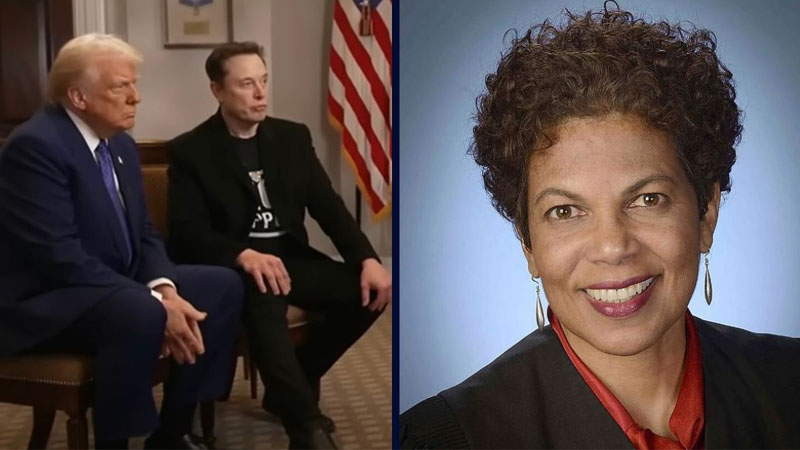In a major legal development, a federal judge in Washington, D.C., has ruled that a lawsuit against Elon Musk and the Department of Government Efficiency (DOGE) will move forward, while simultaneously dismissing President Donald Trump from the case.
U.S. District Judge Tanya Chutkan issued the decision Tuesday, denying an attempt by Musk and DOGE to have the case thrown out, saying the defendants “unsuccessfully” tried to “minimize” Musk’s involvement in the allegedly unconstitutional scheme. At the same time, she granted Trump’s request to be dropped from the suit, which had accused him of violating the Constitution’s Appointments Clause.
- Florida Girl, 5, Allegedly Beaten to Death by Mom and Sex Offender Stepdad; Bedroom Video Emerges
- Meghan Markle’s Garden Photo, Fans Questioning Whether Her Vegetables Are Real
- Surprising Norovirus Symptom That May Appear in Your Legs
- Shakira and Jason Aldean’s concerts canceled unexpectedly moments ahead of show
- Death Row Records founder Suge Knight breaks silence on Bad Boy Records founder Diddy’s federal trial
The lawsuit, filed in February by attorneys general from 14 states, claimed that Musk was placed at the helm of DOGE—a non-governmental agency created by Trump through executive order—without Senate confirmation, violating constitutional norms. The plaintiffs alleged that DOGE and Musk overreached by helping dismantle government agencies and terminate federal employees.
According to the states, DOGE was launched to carry out the “President’s DOGE Agenda,” aimed at modernizing federal technology and boosting governmental efficiency. However, the complaint argued that the Executive Branch acted without Congressional oversight or legal authorization.
Defending the appointment, Musk and DOGE argued that he served only as an informal adviser without any real authority. However, Judge Chutkan, an appointee of President Barack Obama, rejected this explanation. “The Constitution does not permit the Executive to commandeer the entire appointments power by unilaterally creating a federal agency pursuant to Executive Order and insulating its principal officer from the Constitution as an ‘adviser’ in name only,” she wrote in her opinion.

She sharply criticized what she described as the defendants’ “circular reading” of the Appointments Clause, warning that it would allow the president to restructure the entire government without legislative input or judicial review.
“Defendants appear to sanction unlimited Executive power, free from checks and balances,” Chutkan stated. “But the Constitution prohibits unilateral control over ‘official appointments’ by ‘dividing the power to appoint the principal federal offices … between the Executive and Legislative Branches.’”
While Chutkan dismissed the case against Trump, finding that courts generally avoid issuing declaratory judgments against sitting presidents, she emphasized that the lawsuit against Musk had merit. Despite Musk stating in an April Tesla earnings call that he planned to “significantly” reduce his role at DOGE, the judge found sufficient evidence that he still “occupies a continuing position.”
This decision marks a legal setback for Musk and a partial win for Trump, who has long criticized Chutkan as biased. She previously presided over Trump’s federal election interference case, which was dropped after his 2024 election win.
You Might Also Like:
- Florida Girl, 5, Allegedly Beaten to Death by Mom and Sex Offender Stepdad; Bedroom Video Emerges
- Meghan Markle’s Garden Photo, Fans Questioning Whether Her Vegetables Are Real
- Surprising Norovirus Symptom That May Appear in Your Legs
- Shakira and Jason Aldean’s concerts canceled unexpectedly moments ahead of show
- Death Row Records founder Suge Knight breaks silence on Bad Boy Records founder Diddy’s federal trial

